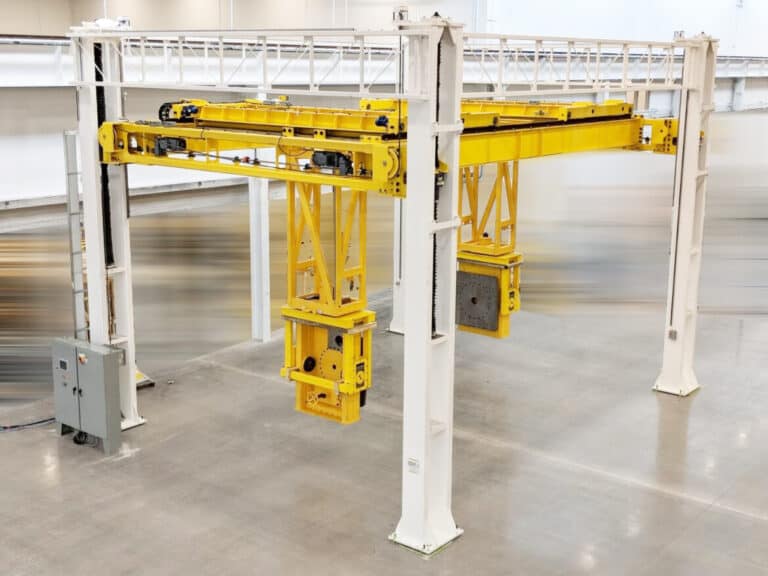Understanding the Inclusions of moving and Freight Forwarding on the planet of International and domestic Delivery
Steering via the complexities of moving and Freight forwarding can be tough. Both processes involve distinct treatments and needs that are important for effective transport. Understanding the distinctions in logistics, documentation, and risk management is necessary for organizations and people alike. This expertise can substantially influence the efficiency and safety of shipments. Nevertheless, many are not aware of the certain elements that affect the total experience and outcomes. What variables should one consider to assure a smooth changeover?
The Fundamentals of moving and Freight Forwarding
moving and Freight forwarding are fundamental elements of the worldwide logistics market. They help with the transfer of products and individual possessions across domestic and international borders. moving mostly entails the moving of households or individuals, including residential and business needs. It normally includes packaging, loading, delivering, and unpacking products at the location. On the other hand, Freight forwarding is focused on the shipment of items, commonly in mass, using various transportation modes, such as air, sea, or land.Freight forwarders function as middlemans, collaborating logistics to ensure timely shipment while maneuvering through facility guidelines and personalizeds procedures. Both processes call for cautious planning, company, and communication to guarantee efficiency and decrease disturbances. Understanding these fundamentals is crucial for any person associated with logistics, as they prepared for advanced facets of shipping and transport management.
Trick Components of Freight Forwarding Solutions
Freight forwarding services include a number of vital parts that guarantee smooth transportation of goods. Trick obligations of Freight forwarders consist of taking care of logistics, collaborating shipments, and dealing with customs clearance. Furthermore, understanding crucial shipping documentation is critical for conformity and efficient movement of freight.
Freight Forwarder Responsibilities
A reputable Freight forwarder plays a crucial function in coordinating the transportation of products, making sure that shipments are managed effectively and in conformity with policies. Their obligations incorporate numerous vital jobs, including picking ideal transport routes, working out Freight rates, and managing logistics. They serve as intermediaries between providers and shippers, ensuring that cargo is properly packaged and classified for safe transportation. In addition, Freight forwarders track deliveries, offering updates to clients concerning the standing and expected distribution times. They likewise evaluate and take care of threats related to transportation, advising insurance policy choices as needed. By assisting in communication and paperwork, Freight forwarders simplify the shipping process, decreasing potential delays and enhancing overall supply chain efficiency.
Shipping Documents Essentials

Recognizing Personalizeds Clearance and Documents
Precise documentation is essential in the customs clearance process, as it guarantees conformity with numerous policies. A summary of custom-mades regulations highlights the complexities dealt with by carriers and Freight forwarders. Typical clearance challenges can greatly impact delivery timelines and expenses, making understanding this facet crucial for effective logistics.
Value of Accurate Documents
Guiding with the complexities of international shipping requires a keen understanding of custom-mades clearance and the crucial duty of paperwork. Exact documents is essential for guaranteeing that deliveries follow laws and reach their locations without hold-ups. Appropriately prepared documents, consisting of costs of lading, commercial billings, and packing listings, promote smooth interactions with custom-mades authorities. Mistakes can lead to shipment delays, penalties, or perhaps confiscation of products. Moreover, comprehensive paperwork aids in tracking deliveries and settling conflicts. Subsequently, businesses participated in moving and Freight forwarding must focus on thorough documentation methods to navigate the complex landscape of worldwide shipping efficiently. This persistance not just streamlines procedures but additionally enhances customer fulfillment by guaranteeing prompt distribution.
Customizeds Rules Overview
Guiding customizeds policies is an essential element of international trade that directly impacts the success of moving and Freight forwarding operations. Reliable personalizeds clearance calls for an understanding of numerous policies, consisting of tariffs, duties, and import/export limitations. Precise documentation is crucial, as it ensures conformity with lawful requirements and promotes the efficient motion of items throughout boundaries. Trick files often consist of commercial billings, packaging lists, and expenses of lading, which provide in-depth information about the delivery. In addition, customizeds brokers play a crucial duty in guiding intricate regulations, functioning as intermediaries between shippers and custom-mades authorities. By maintaining detailed understanding of custom-mades processes, businesses can greatly lower delays and minimize expenses connected with worldwide shipping.
Typical Clearance Challenges
Numerous difficulties can emerge during the custom-mades clearance process, commonly complicating the motion of products throughout borders. One considerable problem is inadequate documentation, which can result in hold-ups and penalties. Importers and exporters should ensure all called for documentation, such as billings, packing listings, and certifications of beginning, is full and accurate. Additionally, disparities in evaluation can trigger examination from custom-mades authorities, resulting in extra obligations or assessments. Language barriers might additionally posture difficulties, as miscommunication can result in misunderstandings regarding regulations. Moreover, modifications in customizeds laws can produce complication, requiring continuous vigilance by carriers. Inevitably, getting rid of next page these clearance tests calls for comprehensive prep work and a clear understanding of personalizeds requirements to help with smooth international deals.
Packaging and Classifying Needs
Usually neglected, packaging and labeling requirements play an essential function in the shipping process, making certain that items are safeguarded and conveniently recognizable throughout their journey (shipping company). Proper product packaging safeguards things from damage during transportation, while additionally facilitating efficient handling and storage. Using appropriate materials, such as bubble wrap, foam, or durable boxes, can avoid breakage and loss.Labeling is equally critical. Exact and clear labels convey important info, consisting of the location, dealing with guidelines, and contents. Labels should abide by laws specific to residential and global shipping, which might include harmful materials identification or customizeds declarations.Moreover, standard labeling methods streamline the monitoring process and enhance overall logistics efficiency. By sticking to packaging and labeling requirements, businesses reduce the threat of hold-ups, damage, or misdelivery. Inevitably, these techniques contribute greatly to the success of moving and Freight forwarding procedures, guaranteeing a smooth delivery experience for all events entailed
Tracking Deliveries: Value and Methods
Reliable packaging and labeling established the structure for successful shipment management, but tracking deliveries is just as vital in the delivery process. Shipment tracking gives real-time presence, which helps services and consumers monitor the development of their items. This transparency improves customer contentment, considering that customers can stay educated regarding shipment timelines and any prospective delays.Several approaches help with reliable tracking. Barcode scanning is an usual approach, making use of one-of-a-kind identifiers to check packages throughout their journey. In addition, GPS modern technology makes it possible for specific location monitoring, permitting prompt updates and boosted logistics administration. Several shipping firms currently use digital systems and mobile applications that supply users with simple access to tracking information.The importance of delivery monitoring can not be overstated; it minimizes the risk of shed or harmed items, boosts operational performance, and promotes count on in between carriers and receivers. As a result, incorporating efficient tracking methods is crucial for effective domestic and worldwide delivery operations.
Insurance policy Options for Your Goods
Safeguarding insurance for products in transportation is an important factor to consider for organizations and people alike. Insurance choices vary based on the kind of delivery, value of items, and certain risks involved. Common kinds consist of service provider liability, which covers loss or damage while in transit, and full-value insurance, providing comprehensive coverage for the total worth of the goods.Shippers may also consider marine insurance policy for international shipments, protecting against dangers connected with sea transportation. It is necessary to examine the specific demands of the shipment and review the terms of any kind of policy.Furthermore, recognizing exemptions and limitations is crucial to prevent prospective voids in protection. Shippers should involve with insurance professionals to check out tailored remedies that fit their distinct situations. Ultimately, buying the appropriate insurance coverage can alleviate financial threats and supply assurance throughout the delivery process.
Picking the Right moving and Freight Forwarding Service
When picking a moving and Freight forwarding solution, it is essential best moving options for businesses and people to very carefully assess their specific needs and top priorities. Aspects such as the volume of items, location, and timeline play a considerable role in this decision-making process. Looking into different companies is recommended; contrasting their services, pricing, and client testimonials can disclose useful insights.Additionally, it is necessary to take right into account the experience and know-how of the provider in handling specific types of freight, specifically for global deliveries that might involve personalizeds clearance. Transparency in rates, consisting of any type of covert charges, ought to also be scrutinized.Furthermore, assessing the level of customer support used is crucial, as prompt interaction can alleviate issues during transit (international shipping). Confirming the schedule of insurance coverage choices guarantees that goods are shielded throughout the shipping procedure. By taking these steps, services and individuals can make educated options that line up with their logistics needs
Regularly Asked Questions
What Sorts Of Item Can Be Shipped Worldwide?

Exactly How Do Shipping Costs Vary Between Different Carriers?
Shipping costs vary substantially between service providers as a result of aspects such as service rate, freight type, range, and additional solutions provided. Each copyright's prices design mirrors these variables, influencing general shipping expenses for clients.
Can I Ship Hazardous Materials or Perishables?
Shipping dangerous materials and perishables goes through stringent policies. Service providers often need particular product packaging, labeling, and documentation. Shippers need to guarantee conformity with neighborhood and global regulations to prevent charges and guarantee safe transportation.
What Should I Do if My Shipment Is Postponed?
When encountered with a shipment hold-up, one should initially call the service provider for updates. After that, review any type of notifications received, assess alternative services, and maintain all celebrations informed regarding the circumstance to lessen disruptions.
Exist Weight Boundary for Delivery Containers?
Weight limitations for delivery containers differ depending on aspects like container size and delivery policies. Usually, basic containers have a maximum gross weight of around 30,000 to 32,000 kilograms to ensure safe transport and handling. In contrast, Freight forwarding is focused on the delivery of goods, typically in mass, making use of numerous transport settings, such as air, land.freight, or sea forwarders act as intermediaries, working with logistics to assure timely delivery while maneuvering through complex regulations and customs procedures. Secret obligations of Freight forwarders consist of handling logistics, collaborating deliveries, and handling personalizeds clearance. A reputable Freight forwarder plays an important function in collaborating the transport of items, making certain that deliveries are handled successfully and in conformity with guidelines. Reliable product packaging and labeling established the foundation for successful shipment administration, but tracking deliveries is similarly important in the delivery process. Lots of delivery companies currently use digital platforms and mobile applications that supply customers with easy access to tracking information.The significance of shipment tracking can not be overstated; it lessens the threat of lost or harmed goods, enhances operational performance, and fosters depend on best long distance moving companies in between shippers and recipients.